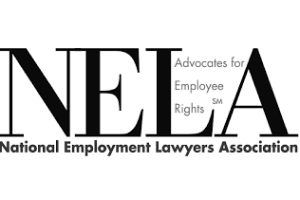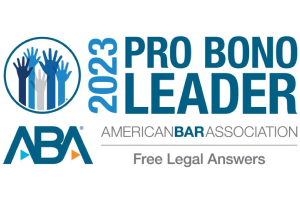for Workers
Wage & Hour Violations
Nashville Overtime Lawyers
You deserve to be fully compensated under the law for your hard work. Unfortunately, some employers intentionally misclassify workers, refuse to pay overtime, and force employees to work off the clock. If you believe your employer has engaged in wage theft, you need to fully understand your legal options.
Our Nashville overtime lawyers file legal claims to recover all wages that were stolen from employees. Contact us at the number above or online for a free online case review.
Wage Theft Under the Fair Labor Standards Act
The Fair Labor Standards Act is a federal law that establishes employment protections related to minimum wage, overtime, and recordkeeping. The FLSA requires employers to pay non-exempt employees at least $7.25 per hour plus 1.5 times their regular rate of pay for all hours worked over 40 per week. The law also requires employers to keep all payroll records for a minimum of three years and all wage calculation methods for at least two years.
Misclassifying Employees Under the FLSA
Despite the FLSA’s broad protections, some employer try to skirt the law’s requirements by misclassifying employees as being exempt from its protections. In this scheme, employees are designated as exempt so the company can avoid overtime pay and other employee-related obligations.
Common FLSA Exemptions
Some “white collar” workers fall under the FLSA’s executive, administrative, or professional exemptions. Whether or not you fall into an exemption is highly fact specific. Several other exemptions and exclusions exist, such as the outside sales exemption and the highly compensated employees exemption. However, if you are being paid on a salary basis but do not supervise any employees, then you may be misclassified. Contact Nashville-based wage theft lawyer Curt Masker for a free legal consultation.
Off the Clock Work
Employers also fail to pay employees for all work performed. Under the law, “hours worked” includes all time an employee must be on duty, on the employer’s premises or at any other prescribed place of work. Failing to pay wages for all hours worked violates the law.
Employee v. Independent Contractor Under the FLSA
Another common employer trick is to wrongfully designate a worker as an independent contractor. Courts have identified at least six factors in determining whether an individual is an employee or an independent contractor:
- (1) the permanency of the relationship between the parties;
- (2) the degree of skill required for the rendering of the services;
- (3) the worker’s investment in equipment or materials for the task;
- (4) the worker’s opportunity for profit or loss, depending upon his skill;
- (5) the degree of the alleged employer’s right to control the manner in which the work is performed; and
- (6) whether the service rendered is an integral part of the alleged employer’s business.
Keller v. Miri Microsystems LLC, 781 F.3d 799, 807 (6th Cir. 2015). Other factors to be considered are whether the defendant had authority to hire or fire the plaintiff and whether the defendant maintained plaintiff’s employment records. Id. No one factor is determinative, the central question is the worker’s economic dependence upon the business he or she is working for. Id. As you can see, the determination of whether a worker is an employee or independent contractor is highly fact specific.
Unlawful Wage Retaliation
Employees are protected under the FLSA against retaliation for complaining about unpaid wages and overtime pay. Under the law, an employer cannot discriminate against an employee “because such employee has filed any complaint or instituted or caused to be instituted any proceeding under [the FLSA], or has testified or is about to testify in any such proceeding, or has served or is about to serve on an industry committee.” 29 U.S.C. § 215(a)(3). Our wage theft lawyers serving Nashville have track records of successfully handling retaliation cases.
Put simply, it is illegal for any employer to treat you poorly after you asserted your FLSA wage rights. Common examples of conduct protected under the FLSA include:
- Complaining to human resources or your boss about unpaid wages or overtime
- Reporting the employer to the U.S. Department of Labor for wage violations
- Complaining on behalf of other employees who were not paid correctly
- Filing or joining a wage and hour lawsuit
Employers who retaliate against employees for speaking out against wage theft may owe significant damages under the FLSA’s anti-retaliation provision.
Damages Under the FLSA
The Fair Labor Standards Act imposes significant penalties on employers who fail to abide by the law’s requirements. Aggrieved employees are entitled to all unpaid wages and overtime, an equal amount in liquidated damages, plus his or her reasonable attorney’s fees.
Statute of Limitations for FLSA Claims
The statute of limitations for minimum wage or overtime violations under the FLSA is generally two years. However, if an employer willfully (intentionally) violates the law, this period is extended to three years. Thus, do not wait to speak with an experienced wage attorney because each week that passes reduces the amount of unpaid wages you are owed.
Fight Back Against Unpaid Overtime and Wage Theft
If you believe you are being unlawfully denied your full wages, contact our Nashville-based overtime lawyers at the number above or online for a free and confidential online case review.














